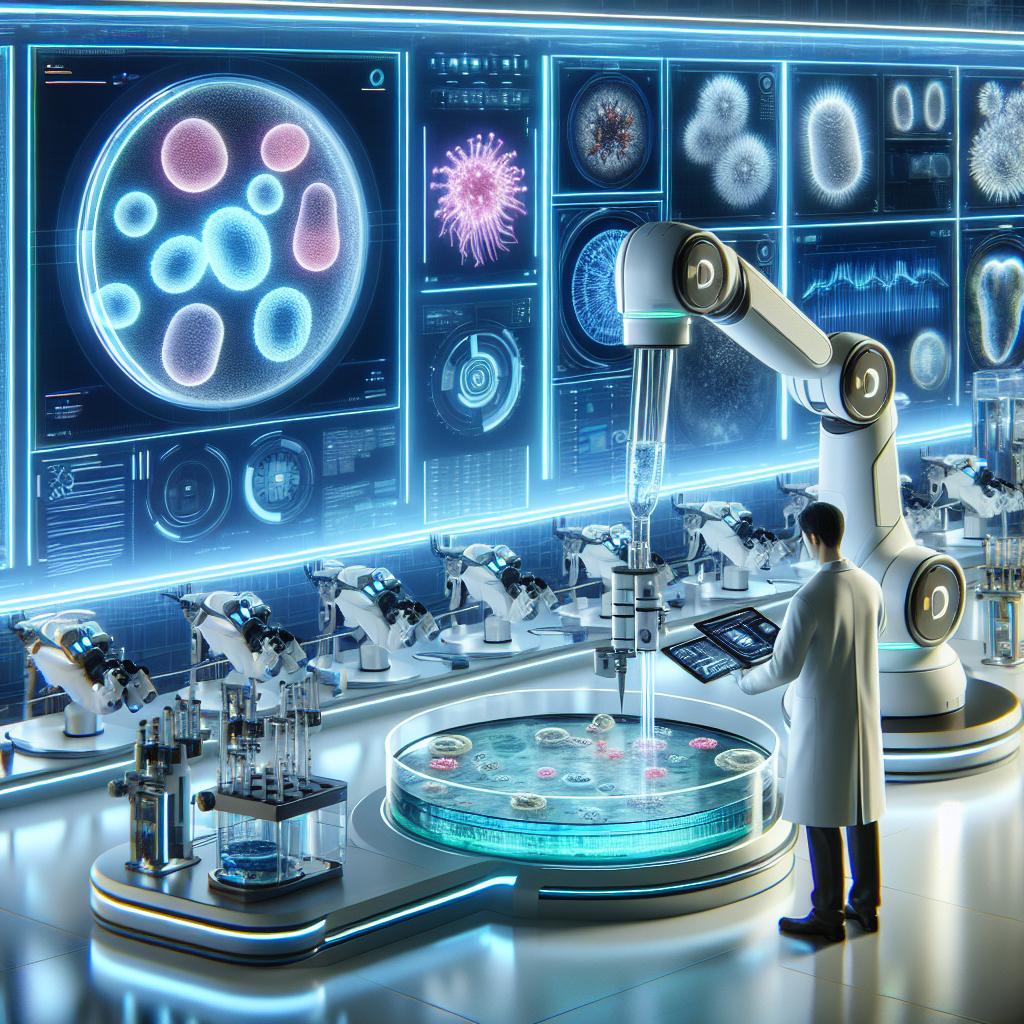Spore.Bio Raises $23M to Apply Machine Learning to Microbiology Testing
In a remarkable advancement in the field of microbiology, Spore.Bio has successfully raised $23 million in a funding round dedicated to enhancing microbiological testing through machine learning technology. This innovative approach aims to revolutionize how we analyze microbiomes, providing more accurate and efficient testing methods that could significantly impact healthcare, agriculture, and environmental science.
The Impact of Machine Learning in Microbiology
Machine learning is transforming various sectors, and its application in microbiology holds immense potential. Traditional microbiological testing can be tedious, time-consuming, and often prone to human error. By incorporating machine learning algorithms, Spore.Bio is poised to streamline these processes, allowing for quicker diagnosis and a deeper understanding of microbial communities.
Understanding the Microbiome
The human microbiome, a complex ecosystem of trillions of microorganisms residing within us, plays a crucial role in our health. Research indicates that variations in microbiomes can influence a range of health conditions, from obesity to autoimmune diseases. However, effectively studying and interpreting these microbiomes has been a challenge due to the complexity and volume of data involved.
Spore.Bio aims to leverage machine learning to analyze microbiome data more comprehensively. By combining big data analytics with advanced computational techniques, the company plans to offer insights that were previously unattainable through conventional testing methods.
Funding Details and Future Prospects
The $23 million funding round was led by prominent investors in the technology and healthcare sectors. The infusion of capital will enable Spore.Bio to accelerate its research and development efforts, hire additional talent, and expand its operational capabilities.
Spore.Bio’s CEO, in a statement following the funding announcement, expressed enthusiasm about the potential applications of their technology. The company intends to focus on developing user-friendly interfaces and platforms that can be readily adopted by healthcare professionals and researchers alike.
Expanding Applications in Healthcare
One of the most promising applications of Spore.Bio’s technology lies in personalized medicine. By analyzing a patient’s microbiome, healthcare providers could make more informed decisions regarding treatment plans, leading to tailored therapies that consider the unique microbial composition of each individual.
Furthermore, the technology could aid in the development of diagnostic tools that provide insights into gut health, metabolic disorders, and infectious diseases. Rapid and accurate testing could significantly reduce the time required for diagnosis and lead to timely interventions.
Influence on Agriculture and Environmental Science
The implications of Spore.Bio’s technology extend beyond healthcare. In agriculture, understanding soil microbiomes can lead to enhanced crop yields and sustainable farming practices. By analyzing the microbiomes present in soil, farmers could optimize their use of fertilizers and pesticides, promoting healthier ecosystems.
Additionally, environmental scientists can utilize the technology to monitor microbial communities in different ecosystems, helping assess the impact of pollutants and climate change. This could lead to better strategies for environmental conservation and restoration.
The Challenges Ahead
Despite the promising potential of machine learning in microbiology, there are challenges to address. The complexity of microbial interactions means that developing accurate algorithms requires vast amounts of high-quality data. Spore.Bio will need to collaborate closely with research institutions and healthcare organizations to collect diverse datasets that can train their algorithms effectively.
Moreover, the company must navigate regulatory hurdles associated with medical diagnostics. Gaining approval from health authorities for their testing methods will be crucial for commercialization.
Investing in Talent and Innovation
To tackle these challenges, Spore.Bio recognizes the importance of investing in skilled personnel. The company plans to expand its scientific team, bringing together experts in microbiology, data science, and machine learning. This multidisciplinary approach will be instrumental in driving the innovation needed to refine their technologies.
Furthermore, fostering a culture of continuous learning and adaptation will be vital for staying ahead in a rapidly evolving field. By encouraging experimentation and collaboration, Spore.Bio aims to cultivate an environment that promotes breakthroughs.
Conclusion
The future of microbiology testing is bright with the advancements proposed by Spore.Bio. By harnessing the power of machine learning, the company is not only enhancing the accuracy and efficiency of microbiological analyses but also paving the way for groundbreaking applications across healthcare, agriculture, and environmental science.
As the company embarks on this exciting journey, the healthcare industry and beyond will be watching closely. The potential to revolutionize our understanding of microbial communities and their impact on health and the environment is a testament to the power of innovation in science and technology. With continued support and collaboration, Spore.Bio is set to make significant strides in microbiology testing, ultimately improving lives and promoting a healthier planet.



